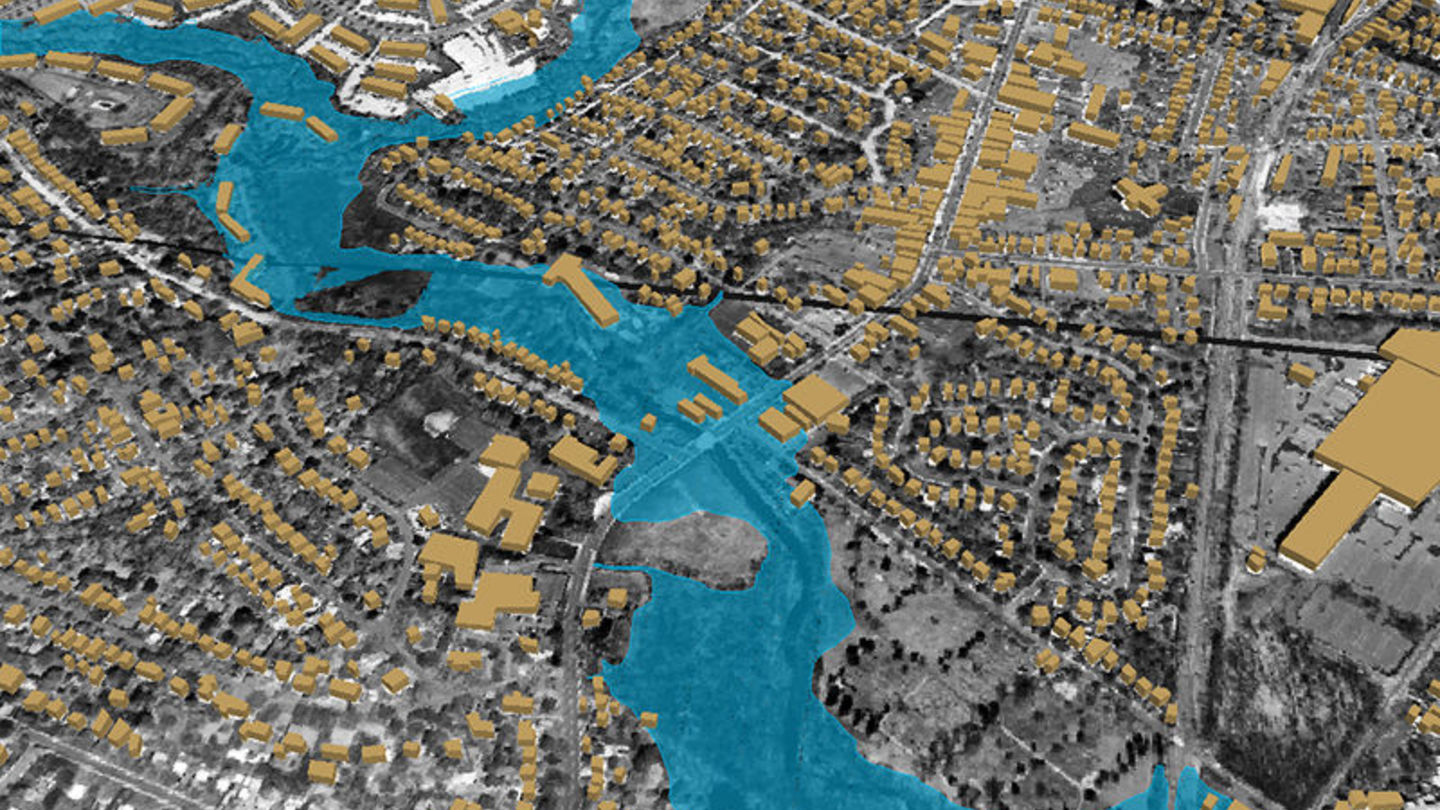
In the 16 years since its inception, the Center for Sustainable Communities at Temple University Ambler has become a leader in researching and planning how to make communities safer, greener and healthier, partnering with state, federal and local organizations to implement plans to leave the region a better place than the Center found it.
"The Center and our researchers, faculty and students are extremely active, a clear indication that our funders are confident that we can do the job," said Susan Spinella Sacks, Assistant Director of the Center for Sustainable Communities. "They know they are going to get a good product with an eye toward implementation. We have branched out from working almost exclusively on watershed and stormwater management to sustainable transportation, urban infrastructure and social equity issues."
The Center was established in 2000 to serve as a local and regional resource that facilitates the development of collaborative solutions in land-use planning and management, environmental protection, ecological restoration, and community revitalization through education and consulting initiatives.
Combining years of expertise and knowledge from a wide range of fields and disciplines, the Center set about tackling comprehensive research into stormwater and emergency management, water quality, transportation, sustainable housing, walkable communities, greenhouse gases and much more.
Center researchers, associated faculty and students from a broad range of disciplines at Temple, have been sought after by municipalities, counties, cities and watersheds to provide recommendations guiding them toward more sustainable futures.
Early project successes included working to alleviate flooding in the Fort Washington Industrial Park and remapping the Pennypack Creek and Wissahickon watersheds. The Center's stormwater management research in the watersheds and other regions of the state led to complete floodplain remapping by the Federal Emergency Management Agency.
Projects in Bucks, Chester, Delaware, Montgomery, and Philadelphia counties focused on ensuring healthy drinking water, providing municipalities the tools to avoid the damaging effects of flooding, effective transportation, ensuring food equity and supporting viable, sustainable communities for today and tomorrow.
Most of the projects that the Center have undertaken place an important emphasis on ensuring "people are remembered in planning," according to Spinella Sacks. The Center has hosted numerous public meetings and planning charettes in communities within the city of Philadelphia and in the suburbs to ensure that their work reflects the needs and interests of the people who live and work there.
In 2014 alone, the Center received grants totaling more than $2.65 million to research and help implement a variety of beneficial projects, from overseeing dozens of restoration projects in the suburban portions of five watersheds in the Philadelphia region to exploring "traffic demand management" policies along the Route 422 corridor.
As Director of the Center almost since its inception, Dr. Jeffrey Featherstone secured more than $10 million in research grants and successfully completed over 30 research projects. Dr. Featherstone tragically passed away in 2016.
Ongoing major grant projects include a $1 million grant from the U.S. Environmental Protection Agency (EPA) for research that focuses on the environmental, economic and social impacts of implementing green infrastructure to deal with stormwater-runoff issues in urban environments. Temple's Main Campus is being used to study and evaluate stormwater management controls and practices.
The Center received a $1.235 million grant from the William Penn Foundation to provide oversight, expertise and support for what could potentially be dozens of restoration projects in the suburban portions of five watersheds in the Philadelphia region. The funding has allowed the Center to conduct modeling, monitoring, assessment and project oversight for projects undertaken by area municipalities and watershed organizations with the ultimate goal being to protect and improve the water quality and ecological conditions of the streams within these watersheds.
In 2016, the Center received a $1.8 million grant from the Pennsylvania Department of Transportation to evaluate stormwater control structures along the heavily traveled I-95 Corridor. The two-year long study will examine stormwater management best practices with the intent of helping to improve water quality in the municipalities along the corridor.
With a $630,000 grant from the William Penn Foundation, the Center has also undertaken a comprehensive Watershed Improvement Plan for the Wissahickon Creek Watershed in Montgomery and Philadelphia Counties. The plan will focus on both stormwater and wastewater management — ways to prevent flooding and ensuring potable water for a population of 160,000 residents in a 64 square mile region that includes 14 municipalities. An interdisciplinary project, the research will include faculty, staff and students from the Division of Architecture and Environmental Design, the College of Science and Technology and the College of Engineering with support from the Environmental Protection Agency and the Pennsylvania Department of Environmental Protection.
The Center for Sustainable Communities, said Spinella Sacks, "has the skilled professors and researchers and a dedicated group of student assistants each year to research each project and provide recommendations and/or direct expertise to bring these projects to fruition."
"We combine those things with technical knowledge and a large network of community partners. We are out helping communities do serious work from preventing floods and stormwater management to transportation planning and reducing carbon emissions," she said. "Through modeling and monitoring, we are learning what is working in the field and what isn't with every project. What makes the most sense; what options are most cost effective and produce the best outcomes."
All of the research that that the Center undertakes "is designed to improve lives," Spinella Sacks said.
"Doing this type of research is the classic role for a university to take in conjunction with our community partners," she said. "In doing so, we also provide a diverse group of students from a wide variety of disciplines at Temple — from Planning and Community Development to the College of Science and Technology — the opportunity to engage in real world projects with actual clients. They are learning skills today that will directly benefit them in their chosen professions."
